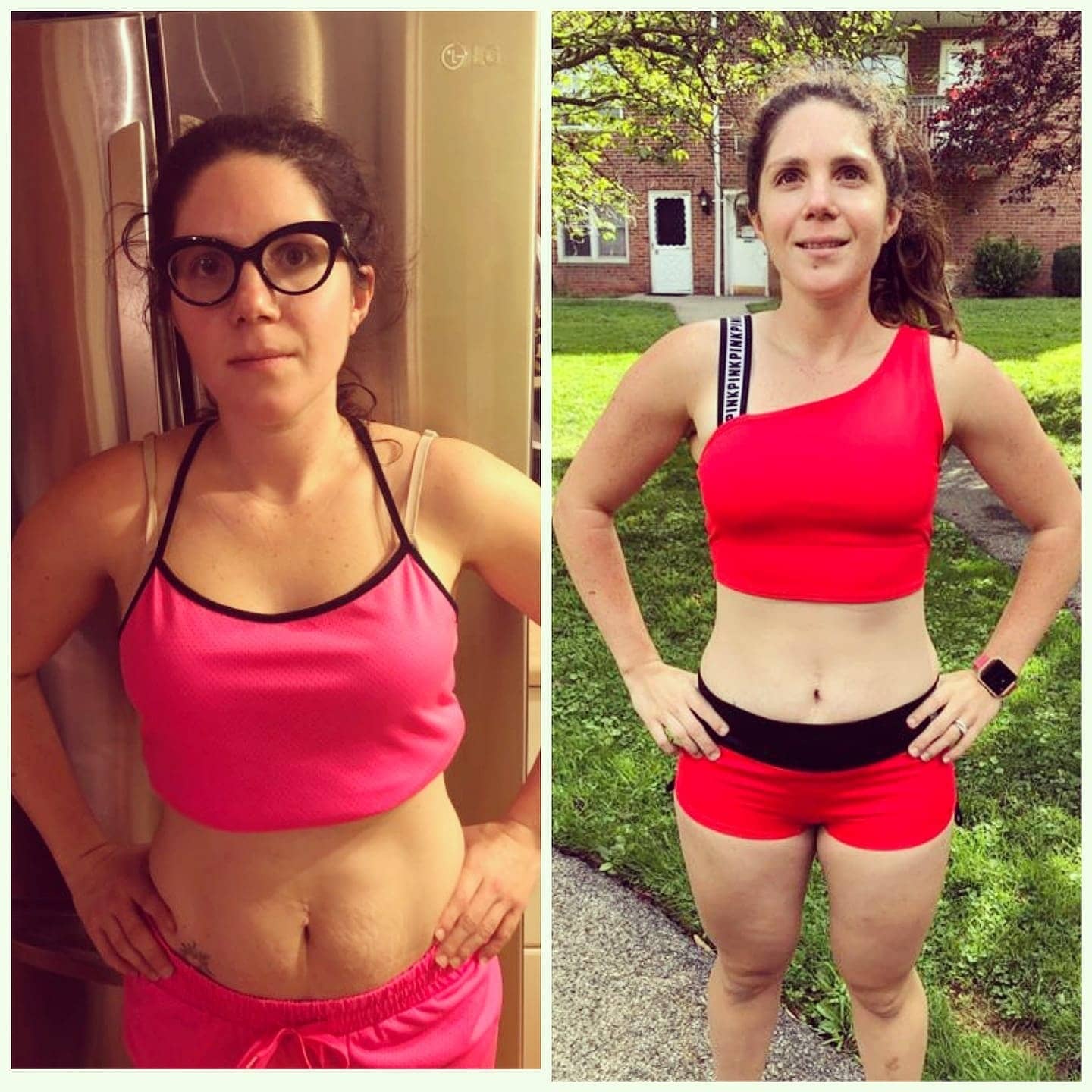The Athlete's Mindset, What's the Least Amount of Workouts You Can Do, and Why Sleeping More is Better
Nov 09, 2023
As I'm writing this, I'm staring at the Colorado mountains.
We're here for the weekend as my wife attends a local health program.
Now that it's fall and the leaves are falling fast, you can sense the changes happening as the seasons change.
The cold begins.
Frost starts to creep in.
And we begin to adapt to the colder season.
I love this time of year.
It's a great time for self-reflection and introspection, as well as solitude.
Which is why being close to nature is an excellent opportunity to spend more time with yourself and study your habits, behaviors, and beliefs.
I plan on taking long walks this weekend and disconnecting from technology, the internet, and the 'external' world.
Brendan Burchard (one of the world's leading high-performance coaches), shares the importance of self-reflection.
According to Brendan, most people don't self-reflect often enough.
However, high performers and high achievers reflect on average once PER HOUR.
 |
Self-reflection is an opportunity for us to study and understand ourselves more deeply.
Lesson: Create time for daily self-reflection and self-study. Understanding yourself is the most important subject of all.
Here is your 5 Minute Friday:
The Athlete's Mindset
If you want to unlock a new level of health & fitness for your life, this may be one of the most important topics.
Mindset is a commonly thrown-around word these days.
However, at a deeper level, what is being spoken about is your 'psyche'.
Your psyche is the mental and emotional parts of yourself, including the conscious and subconscious, that program what you do each day.
Learning how your psyche works could take an entire lifetime.
It can also happen much faster by studying yourself, practicing self-study, and spending time in solitude.
That said, mindset is an enormous part of the success formula if you want to create a lean, strong body as a busy plant-based leader.
One of the simplest ways to do this is to create a growth mindset that is open to continuous growth.
Research proves over and over again that people who stay stuck and struggle to move forward in life do so because of a 'fixed' mindset.
A fixed mindset is a way of thinking that believes you aren't capable.
That you can't do something.
That you'll always be stuck.
On the contrary, a growth mindset is curious.
It's open. It's explorative. And it wonders how it can keep growing.
A growth mindset is another 'modern' term for something at the core of our true nature.
When we came onto this planet, we didn't have fixed mindsets.
We're open. Curious. In awe.
It's only after years of conditioning and brainwashing by well-meaning but mistaken loved ones that we create a fixed mindset.
Which means at your core - it's not who you truly are.
Take the time to examine your beliefs.
 |
Question them and ask yourself if they serve you.
Be bold with this.
Many of our beliefs took years and decades to be formed.
Re-creating a growth mindset will take time and patience if you've been stuck for years.
But it can happen again because it's ultimately you just revealing who you are back to yourself.
Come back home.
What's the Least Amount of Workouts You Can Do
Working out more may not be the most effective option to maximize your strength and muscular progress.
There's a rule of thumb to keep in mind when lifting weights.
The rule of MED (minimum effective dosage) is a simple way to get the MOST out of the minimum amount of work in exercise science.
In the high achiever and productivity culture that we all live in, more is often seen as better.
As a badge of honor.
However, when it comes to exercise science, less is more.
While research shows you can go with as little as one workout per week lifting weights (Super Slow Training), most people don't have the right equipment to do this correctly.
Striking the right balance between results and training is essential.
According to a meta-analysis done on the minimum effective dosage required for muscle and strength in healthy older adults, there IS a minimum exercise dosage you can use and still see great results.
Their conclusion?
- A training frequency of two sessions per week
- A training volume of two to three sets per exercise
- Seven to nine repetitions per set
- A training period of 50-53 weeks
- A training frequency of three sessions per week
- A training intensity from 51 to 69% of the 1RM
- A total time under tension of 6.0 s
- A rest of 120 s between sets
- A rest of 2.5 s between repetitions was the most effective.
While the findings are still preliminary, this lines up nicely with what I've seen for the past 13 years lifting weights as well as the past 7 years training and coaching others.
As a side note - I'll also add that as you adapt to the training variables above, over time, you'll need to tweak your training to continue to see adaptations.
But this is a solid framework to hit the gym this week and start seeing results.
Why Sleeping More is Better
As a species, we're getting less sleep.
Every year.
In the 1940's, the average American got 7-9 hours of sleep.
Nowadays?
That's less than 7 hours per night.
What's interesting is that the older the age group, the higher the number of hours of sleep per night (it seems like our grandparents still know a thing or two).
If you're lifting weights, in a caloric deficit (which are two physiological stressors) PLUS working in a high-powered career, taking care of your family, traveling, etc - you need more sleep.
Dropping body fat and building lean muscle doesn't happen when you lift weights and eat fewer calories.
Sleep and stress management are two of the most common concerns I hear when working with new clients.
 |
It's the one that most high performers tend to struggle with the most.
This past week, I had a conversation with one of our students.
A CEO and Founder of a multi-million national disaster cleaning service, he employs dozens of team members and travels frequently.
He also struggles with getting more than 4-5 hours of sleep each night.
His challenge?
Turning off the 'noise' in his mind.
Which led to a weight loss plateau and his weight rebounding.
Weight loss isn't a linear process.
It fluctuates almost daily and can drive even the most detached human a bit nuts.
My suggestion to him?
Practice doing a mind-body scan each evening for 60 seconds.
Close your eyes for 1 minute and slowly breathe as you scan from the top of your head to your toes.
Deep breathing is one of the fastest ways to calm our central nervous system (which is constantly in a fight-or-flight mode in modern society).
After 60 seconds of practicing this together?
He was sold.
So, in conclusion, here's a good rule of thumb for sleep each night:
Aim for 7-9 hours of deep quality sleep each night.
If you're working towards building muscle or dropping body fat, that number is higher and closer to 8-9 hours per night.
Honor your sleep the same way you do your appointments at work or time with your family.
And use trigger practices like the mind-body scan to help stimulate a good night's sleep each night.
Client of the Month
 |
Barbara is a busy woman. Mother. Teacher. Community Leader. She also felt insecure in her body and health.
She was struggling with dropping the post-pregnancy weight along with regaining her strength.
Our strategy: Focus on setting up her training days in the gym (3 days) plus 2 days of cardio (since she enjoyed it).
We also set up a modest caloric deficit and focused on staying within ~200 k/cal of her caloric goal.
Paired with increasing her steps and eating more fruits and vegetables, we kept things simple.
Her wins? Down 20 lbs, 4 inches from her waist, and confident enough to hear a two-piece outdoors (check out her second photo!).
She also became one of the strongest members in her gym - lifting 145 lbs on her barbell squat after several dedicated months rebuilding her strength using the specialized training techniques we taught her.
She's a great reminder that no matter how busy we are - health must be our first priority.
It touches everything else in our lives.
If you're a busy vegan professional or entrepreneur who wants to get lean, build muscle, and build a high-performance body while fueling your vegan impact, click here to apply for a free gameplan session.
One Quote To Finish Your Week Strong
“I’ve missed more than 9000 shots in my career. I’ve lost almost 300 games. 26 times, I’ve been trusted to take the game-winning shot and missed. I’ve failed over and over and over again in my life. And that is why I succeed.” Michael Jordan
Practice doesn't make perfect.
Practice makes permanent.
Perfect your practice over time. That's how you can become unstoppable and live at the top of your game.
- Gabriel
P.S. If I let every new client who joins our program be coached for free for the rest of 2023, what do you think?😬
Worst idea ever?😅
Whenever you're ready, there's 2 ways I can help you:
1. Join our free high-performance vegan fitness FB group to get access to dozens of live trainings recorded to get lean, build muscle, and regain energy even with a busy lifestyle.
2. Are you a high-performer who wants to get lean, strong, and lead by example? Apply for private one-to-one coaching here.
